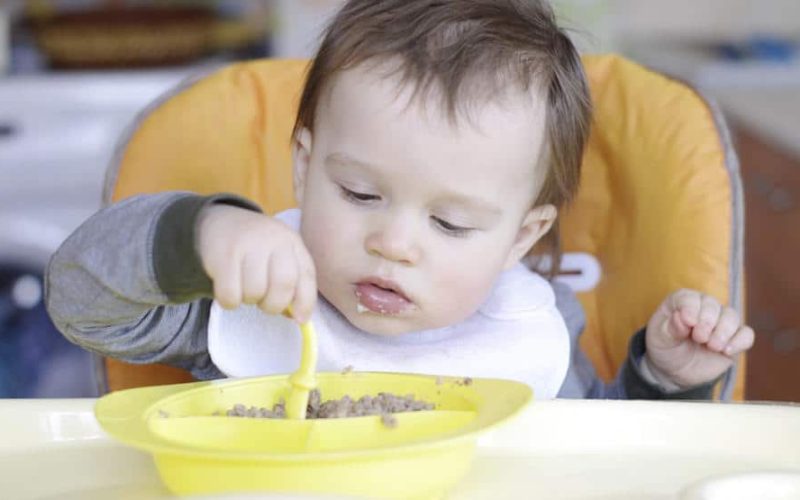Poor appetite is the leading cause of malnutrition in children; every child passes through this phase at a point in their lives, others make a quick recovery and for others it almost becomes permanent.
If this condition is not arrested; it can lead to a lot of health problems in children which can even affect them in their adulthood.
Children in this article refer to kids from infancy to 12 years of age.
Causes of poor appetite in children
- Illness: an underlying medical condition can be behind your child’s sudden loss of appetite or disinterest in food. When you’ve tried all you can and the poor appetite still persists; then you need to see a doctor immediately so that he will diagnose the cause and when the root cause is treated, appetite is usually restored. Signs that an illness could be behind your child’s loss of appetite are sore throat, high temperature, rash, headache, diarrhea, stomach flu and restlessness. Apart from sickness, other reasons for poor appetite are:
- Intake of other fluids and snacks in-between meals: When your child takes lots of fluids other that water and snacks in-between meals, it will affect their intake of proper foods and this habit should be discouraged. Also giving babies that are still breastfeeding excess water and fruit juices fills up their stomach; this can make them to quickly feel full, this will lower their appetite and make them resistant to food. It will also hinder the ability of their bodies to absorb nutrients in breast milk or formula.
- Slow rate of growth: Changes in the rate of growth can affect a child’s appetite and this is completely normal. A child grows rapidly during the first year but after that, the rate of growth slows down and they usually eat less food during this period.
- Teething: The growth of teeth in babies can cause loss of appetite due to the pain and discomfort caused by the tearing of the gums. You can relieve the pain by giving your baby teething toys to chew on; breastfeeding or bottle feeding can increase the pain and disrupt appetite, so you try and feed them from a cup and feed them cold foods like yogurt and mashed fruits.
- Stress: Stress have negative impact on kid’s health and lack of appetite is included; if you think stress is behind what is causing your child’s loss in appetite, you need to identify the cause of the stress and alleviate it. Common causes of stress in children are family problems like strife between parents, death of a family member, death of a pet, birth of a sibling, bullying at school, impractical expectations of parents and the inability to cope with academic pressure.
- Infections: Viral and bacterial infections can lead to loss of appetite in children and they include flu, ear infection and bronchitis. These infections cause rapid breathing, poor appetite, and insomnia in children and take them to hospital for medical attention.
- Depression: Many parents mistake depression for sadness which can be a child’s reason to lose appetite; depression does not go away with the passage of time and it interferes with the normal life of a child. You need to know what is making your child depressed and handle it; you may also need medical support to help your child come out of depression. A typical sign of depression is when your child loses interest in activities he/she loves doing before.
- Hot weather: overheating makes babies cranky, it makes them develop rashes and resistance to foods; if not controlled it can lead to dehydration which can further worsen the situation. Make sure your baby‘s room is always cool during summers; wear light cotton clothes for them and make sure they are well hydrated.
- Medications: Children on antibiotics and other medications usually lose appetite; this is a side effect of most medications.
- Food intolerance: Food intolerance and allergies to certain foods like milk, eggs, peanuts and soy can cause bloating, vomiting, diarrhea, itching and appetite loss in children. Know what your kids are allergic to and avoid giving them that food; you can also feed your little one hypoallergenic infant formula if they are allergic to milk protein, this will alleviate the symptoms of the allergy and brings back their appetite back on tract.
- Anemia: This is another possible cause for a child’s poor appetite; if the child looks weaker, tired and irritable than others it could be a sign of anemia. This condition requires urgent medical condition because it can interfere with the child’s academic performance, growth and development.
- Sore throat: A viral infection or persistent crying can result in sore throat which will lead to loss of appetite; it will be difficult for your baby to swallow food in this condition. Contact a doctor immediately if your baby’s sore throat is accompanied by fever and swollen lymph node.
- Intestinal worms: Worms in the intestine can cause poor appetite; they enter the digestive systems and live there as parasites, from there they cause a lot of digestive problems and disorders, they also cause dysentery, intestinal bleeding and loss of appetite. De-worming your child will help and this should be done regularly like every three months.
- Zinc deficiency: Studies have linked poor appetite to zinc deficiency in the body; this vital mineral helps in the production of hydrochloric acid which is required for proper digestion of food. A reduced level of zinc in the body leads to poor appetite, digestive problems and poor absorption of food. Add rich sources of zinc to your child’s meals like chicken, wheat bran, cashews nuts and pumpkin seeds.
- Constipation: Irregular movement of the bowels can lead to constipation and a major symptom of constipation in toddlers is lack of appetite.
- Too much of milk and dairy product: Too much of these can result in low appetite in toddlers; cow’s milk and dairy products should be limited.
- Physical inactivity: Physical inactivity and sedentary lifestyle can affect a child’s appetite negatively; don’t let your child spend all his time and energy watching TV or playing video games on your smartphone, allow them to play outside and exercise regularly.
How to boost appetite in children naturally?
Make breakfast compulsory: Give them a good and healthy breakfast every day; this will increase their appetite and boost their metabolism after the night fast and it also gets the body ready for the day’s work.
Making breakfast compulsory in your home is a tried and tested formula that boosts healthy eating in kids and this habit follows them into adulthood.
Papaya: This fruit is a natural appetite stimulant; it increases appetite in kids and helps them gain weight. It is also rich in vitamins A, C and E which help in improving appetite. Give them homemade papaya juice and this is safe for kids at age 7 months and above.
Give them lots of basil: This herb is effective in boosting appetite and improving digestion; it is safe to use for babies above 8 months.
Sweet potatoes: This increases appetite in children and help them gain weight in a healthy manner; they are also rich in dietary fibers and this food is one of the best weight gain foods for babies.
You can feed babies with sweet potatoes from six months of age and above. Boil it till soft then mash it and serve them; for kids under the age of one, do not add salt or sugar.
Take water before meals: Kids should have water first thing in the morning when they wake up, even before milk; they should also be given water 30 minutes before meals, and this will boost their appetite.
Carom seeds: This has been used for centuries in India to boost appetite and keep digestive problems at bay; feed your baby from six months and above with lots of these seeds to boost appetite.
Cinnamon: Cinnamon can increase appetite in babies, toddlers, and children effectively; it can even increase appetite in adults, it is rich in hydoxychalcone which increases appetite. It is safe for babies of 7 months old and above. Add cinnamon powder to their meals, porridge, and drinks.
Pomegranate juice: This juice is safe for babies six months of age and above; this is an excellent fruit for improving appetite and curing digestive disorders; it kills intestinal worms, protects the liver and makes the baby feels more comfortable.
Feed them every two hours: Children who fuss over food because they are not too hungry should be given food every couple of hours; this will boost their digestive system enough to feel hungry.
You can do this in the form of snacks; replace snacks with healthy meals and give it to them every two hours. Instead of a cookie, you can give them a sandwich; instead of chips, give them muesli or cereal. These healthy replacements will boost your child’s appetite.
Don’t force the child to eat: This will make them resent food the more and be afraid of meal times; let them chose the quantity they can finish while you provide the healthy meals. Make meal time fun and avoid distractions.
Ginger: This herb is powerful in increasing appetite in everyone including toddlers and children; it is one of the best appetite enhancing foods. Crush ginger and extract the juice; you add it to their drink or food. This herb is safe for kids above one year of age.
Peanuts: Peanuts are effective in boosting appetite; except your child has allergies to peanut, give him/her fried peanuts regularly to boost appetite and build the body due to its rich content of protein.
You can also give your child peanut butter if he/she doesn’t have an allergy to it. Please note that peanuts should not be given to a child less than one year of age and peanuts also have rich content of zinc.
Oregano: This wonderful spice can increase appetite in toddlers and kids; add the spice in homemade pizzas, pastas, omelets and breads.
Reduce milk and dairy products: Too much milk is behind the cause for low appetite in many children; too much of this kills their appetite for the next meal; replace milk and milk products with yogurt, cream and cottage cheese.
Thyme: This is effective in boosting appetite in babies and kids; add it in rice and other meals.
Offer favourite foods: For those children with poor appetite that are irritated at the very sight of food; offering them their favourite food will help to initially kick start their metabolism and keep it running, healthy foods can follow when they start accepting the very idea of eating.
Carrot juice: Carrot is effective in stimulating the appetite; give your kids a half glass of carrot 30 minutes before meals to increase hunger.
Offer food in little quantity: Small bites of food build metabolism which in turn will improve appetite. This will slowly increase their want for food; continue doing this until they start eating on their own and decide on their bite size themselves.
Pumpkin seeds: These seeds are rich in zinc which is effective in improving appetite. Give your child little of these seeds so that they won’t feel too full and reject food.
Give them yogurt regularly: Organic yogurt is important for a child’s health; it contains healthy probiotics and a rich amount of calcium that prevent loss of appetite and digestive problems, it also improves their immunity.
Lemon juice: A glass of lemon juice will help boost their appetite. It can also kill the germs in the stomach which causes poor appetite due to the powerful antimicrobial properties of lemon.
It also helps digestion and prevents digestive problems. Give them lots of lemon water during summer; it will cool their system and make them feel for more comfortable, lemon water is safe for babies aged six months and above.
Avoid foods with strong scent: Most children with low appetite are repulsive to foods with extreme scents and overpowering taste. Try and eliminate this to improve your child’s appetite.
Dried fruits and nuts: Cashew nuts, Almonds, Pista, and Walnuts are good appetite boosting foods; dried fruits like dates and figs are effective enhancers of appetite. They also help kids gain healthy weight. Give them these foods regularly as evening snacks.
Avoid oily foods: Oily foods kill appetite; go easy on fats, dairy and fatty products, this will reverse your child’s low appetite.
Horseradish: Horseradish root is used to effectively boost appetite in children; give a child suffering from poor appetite a teaspoon of horseradish three times daily before meals for two weeks.
It will boost his appetite; supports the production of gastric juices which will improve hunger and maintain a healthy appetite.
Give them freedom: Toddlers and children are so energetic and confining them to a spot or allowing them to be on a spot watching TV or playing video games are not good for them; playing outside and sports increases appetite, when playtime is increased, appetite also increases.
Alfa alfa: This is a popular home remedy used in stimulating appetite and treating digestive problems. Give a teaspoon of alfa alfa to a child suffering from poor appetite daily to improve the condition. It also helps easy movement of bowels and keeps the child’s digestive system healthy.
Don’t discuss family problems in front of the child: This can cause depression and lack of appetite in children; rather talk about positive things in their presence and this will boost their appetite.
Aloe vera: This is one of the best natural remedies for poor appetite; it heals the mucosa linings and aids easy movement of bowels. Give a teaspoon of aloe vera daily to a child above one year of age.
Increase their intake of zinc: Zinc helps in regulating appetite; a deficiency of this mineral leads to poor appetite, give your children lots of wheat bran, cashew nuts, oysters, beef, spinach, eggs, oats, lentils and pumpkin seeds.
Increase their intake of iron: A deficiency in this vital mineral will lead to anemia which causes poor appetite and other severe health complications. The stores of iron in the body deplete after six months of age and this is why at least 1 in 8 toddlers is anemic before the age of two. Increase their intake of iron rich foods like eggs, tomatoes, green vegetables, nuts, legumes, seeds, chicken, beef and whole grains.
What you should know and do?
As earlier mentioned; the eating habit your children develop as toddlers can determine their eating habit and this can affect them for the rest of their lives.
This is because poor eating habits are hard to break; so as a parent, it is your responsibility to correct poor eating patterns and habits in children.
Make sure your children eat in a healthy and positive atmosphere; makes sure the foods are always coloured with plenty fruits and vegetables, this will help them develop healthy attitudes about food and themselves.
Eating together as a family is one way to help your children develop healthy attitudes and mindsets about food.
When to seek medical help
Seek medical help when:
- You think an underlying medical condition is responsible.
- You suspect anemia
- If your child throws up after every meal
- If your child is suffering from diarrhea or fever or both
- If your child has not gained weight during the last six months
- You notice your child losing weight without any apparent reason
- You think your child is depressed
- You can meet a doctor to adjust or change your child medications if it has poor appetite as a side effect. ADHD medications and antibiotics give loss of appetite as a side effect.








